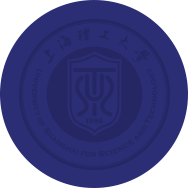--------Special Session on System Science
(April 19-21, 2019)
--------Special Session on Optical Engineering
(April 27-28,2019)
1. Introduction
This forum exclusively is designed to build an academic communication platform for outstanding young scholars in the fields of System Science and Optical Engineering. The forum aims to invite young scholars from relevant fields to discuss famous topics on the subject of international academic frontiers, promote academic communication and cooperation, and build a platform for talents to communicate and cooperate through the Academician Special Report and Sub-forum Academic Seminar. It will also promote interdisciplinary and academic innovation, enhance mutual cooperation and mutual trust, deepen the comprehensive understanding of University of Shanghai for Science and Technology (USST), and gather global talents to build a high-level university which is USST. The forum will also invite well-known academicians and experts in relevant fields to make special reports, and provide a face-to-face communication-platform for young scholars and academicians.
2. Academic areas
(1) Research areas of System Science: Systems Science, Management, Economics, Finance, Sociology, Logistics, etc.
(2) Research areas of Optical Engineering: Ultra-precision Optical Manufacturing, Terahertz Science and Technology, Ultrafast Nonlinear Optics, Nanophotonics, Precision Spectral Detection Technology, Control Science and Engineering, Testing and Information Engineering, Computer Science and Technology, etc.
3. Application conditions
(1) Under 40 years old.
(2) Acquired or will soon obtain a doctoral degree at a well-known university at home or abroad, with active academic ideas, good academic background and academic attainments.
(3) Have achieved certain results in the research area or have good development potential in research.
4. Schedule
Special Session on System Science
April 19th (14:00-19:30): Check-in
April 20th (8:30-11:30): Opening Ceremony and Main Forum Special Report
April 20th (13:30-17:30): Sub-forum Academic Seminar
April 21st (8:30-11:30): Visit and research
Address: USST Jungong campus (No. 516, Jungong Road, Shanghai, China)
Special Session on Optical Engineering
April 26th (14:00-19:30): Check-in
April 27th (8:30-11:30): Opening Ceremony and Main Forum Special Report
April 27th (13:30-17:30): Sub-forum Academic Seminar
April 28th (8:30-11:30): Visit and research
Address: USST Jungong campus (No. 516, Jungong Road, Shanghai, China)
5. Registration process
(1) Before April 1, 2019, complete online registration and submit application, resumes can also be sent to the contact e-mail below to apply.
(2) Before April 8, 2019, the university will review the applicant's qualifications and issue invitations to the forum.
6. Contact information
Special Session on System Science
Contact: Kai Zhu
Tel:13611906496
E-mail:ishzhukai@usst.edu.cn
Special Session on Optical Engineering
Contact:Jianwei Cao
Tel:+86-21-55271298
Email:gdxy@usst.edu.cn
7. Forum Funding
(1) The accommodation is arranged uniformly during the forum, and the expenses are borne by the university.
(2) The university will provide transportation subsidies according to the participants’ actual transportation expenses due to attendance to and from Shanghai. The upper limit of transportation subsidies is: ¥15,000/person from Europe and America, ¥8000/person from Asia-Pacific, and ¥5000/person from China (including Taiwan, Hong Kong and Macao).
Introduction of USST
USST is mainly engaged in Engineering, with coordinated development in multiple disciplines of: Engineering, Science, Economics, Management, Literature, Law, Art, etc. It is a key application-research oriented university constructed by the Shanghai Municipal Government. In July 2016, it became a university characterized by national defense which was co-sponsored by the State Administration of Science, Technology and Industry for National Defense and the Shanghai Municipal Government. In 2018, it became one of the pilot units to construct the “High-level Local University” program in Shanghai.
Currently, USST has more than 24 thousand students, among which 17,000 are undergraduates and 7,500 are post-graduate students. There are 16 schools, 1 department of education, 56 undergraduate programs, 8 first-level disciplines authorized to offer doctoral degrees, 4 post-doctoral research stations, 27 first-level disciplines authorized to offer master degrees and 11 professional master degrees. In terms of discipline construction, the disciplines of Engineering and Materials Science rank in the top 1% of ESI in the world; USST also has one Shanghai Class III peak discipline, four Shanghai Class I plateau disciplines, and one discipline participating in Shanghai Class IV peak discipline construction.
In the important period of strategic opportunities for China to build “top universities and top disciplines” and for Shanghai to build high-level local universities, with the three international laboratories for future optics, intelligent manufacturing and medical equipment & rehabilitation engineering the platform of systems management as a basis, USST is developing such top disciplines as Optical Engineering, Systematic Science, Power Engineering & Engineering Thermos-physics, Mechanical Engineering and Biomedical Engineering. With the goal of building itself into a top university of science and technology with outstanding features, USST will spare no effort to seize opportunities to reform and innovate to realize its high-level of development.
Introduction of System Science
USST is one of the earliest institutions in China to conduct System Science research. The academic disciplines include: Management Science and Engineering, Engineering Management, Financial Engineering, etc. In 1995, System Science became the key discipline of the former Ministry of Machinery Industry, and it was the only provincial and ministerial key discipline in China at that time. USST’s System Science was included in the Key Discipline Construction Plan of Shanghai in 2008, was approved as Peak Discipline of Shanghai in 2015, and was included in Shanghai Double First-Class Construction Discipline in 2018. Through years of construction of the discipline, we have built a research team with incredible strength and great influence at home and abroad. The discipline ranked third in the Fourth Round of Discipline Evolution by the Ministry of Education, which ranked top compared with other traditional schools.
The currently research platforms in our discipline include: National Economic Management Experimental Teaching Center (Ministry of Education, 2006) and Shanghai Academy of Systems Science (Shanghai Science and Technology Commission, 2005). At present, the discipline has established long-term close international cooperation with Karlsruhe University, Munich University of Technology, Juan Carlos University of Spain, National University of Singapore, National Taiwan University and Hong Kong University of Science and Technology. The discipline has 5 renowned professors of National Outstanding Teachers and Eastern Scholars, and 10 talented individuals at a provincial and ministerial level. The team has won provincial and ministerial level science and technology awards such as the Shanghai Science and Technology Progress Award. The discipline has a group of young scientific research talents who are active and innovative in the Shanghai Academy of Systems. The team’s youth and backbone are the future of the System Science Community and have basically hosted the National Natural Science Foundation and funded the project and published high-level SCI papers by the first author. All of the discipline members have achieved obvious benefits through adhering to the thought of System Science and applying the method of System Science in scientific research.
Introduction of Optical Engineering
The discipline of Optical Engineering of University of Shanghai for Science and Technology, led by Pi Zhuang Songlin, the famous optical expert and academician of Chinese Academy of Engineering, can be traced back to the discipline of Optical Instruments established in 1960. In 1981, it was conferred the right to offer master's degree programs. In 1998, it was conferred the right to offer doctoral degree programs. In 2001, it was listed as a key discipline of the Shanghai Municipal Education Commission. In 2005, it was listed as the key discipline of Shanghai. In 2007, the Optical Engineering Postdoctoral Research Station was set-up. In 2009, the discipline was listed as the National Key Discipline (cultivating stage). In the same year, one of the doctoral dissertations of the discipline won the award of the Top 100 National Excellent Doctoral Dissertations. In 2012, another doctoral dissertation won the award nomination of the Top 100 National Excellent Doctoral Dissertations. In 2015, Optical Engineering was approved as “the Peak Discipline” of Shanghai and was rated as excellent in the “Peak Discipline” accreditation in 2017. The discipline ranked 10th (first in Shanghai) in the national discipline accreditation in 2012, and ranked B+ (first in Shanghai) in the fourth-round national discipline accreditation conducted by the Ministry of Education in 2017.
The discipline of Optical Engineering enjoys good facilities, including the Optical Instruments and System Engineering Center of Ministry of Education, the Key Laboratory of Photoelectric Precision Testing Technology for Machinery Industry, the Shanghai Key Laboratory of Modern Optical System, the Shanghai Ultra-Precision Optical Machining and Testing Service Platform, etc. It is the President Unit of China Instrument and Control Society, and the affiliated institution of the China National Center for Quality Supervision and Test of Optical Instrument, the National Standardization of Optics and Photonics Committee, the Committee of Engineering Optics of Chinese Optical Society, the Optical Instrument Branch of China Instrument and Control Society and the China Instruments Manufactures Association.

 Home
·
News & Events
·
Content
Home
·
News & Events
·
Content

